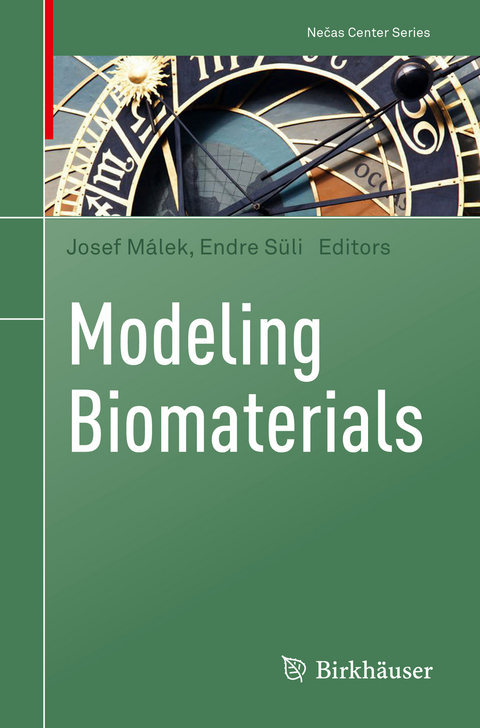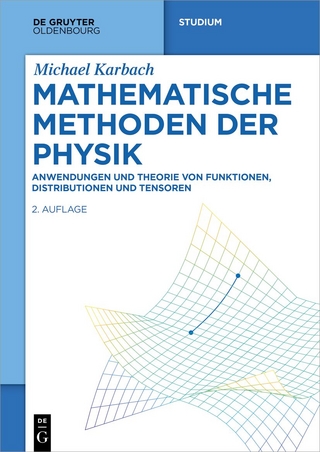
Modeling Biomaterials
Seiten
2022
|
1st ed. 2021
Springer International Publishing (Verlag)
978-3-030-88083-5 (ISBN)
Springer International Publishing (Verlag)
978-3-030-88083-5 (ISBN)
The investigation of the role of mechanical and mechano-chemical interactions in cellular processes and tissue development is a rapidly growing research field in the life sciences and in biomedical engineering. Quantitative understanding of this important area in the study of biological systems requires the development of adequate mathematical models for the simulation of the evolution of these systems in space and time. Since expertise in various fields is necessary, this calls for a multidisciplinary approach.
This edited volume connects basic physical, biological, and physiological concepts to methods for the mathematical modeling of various materials by pursuing a multiscale approach, from subcellular to organ and system level. Written by active researchers, each chapter provides a detailed introduction to a given field, illustrates various approaches to creating models, and explores recent advances and future research perspectives. Topics covered include molecular dynamics simulations of lipid membranes, phenomenological continuum mechanics of tissue growth, and translational cardiovascular modeling.
Modeling Biomaterials will be a valuable resource for both non-specialists and experienced researchers from various domains of science, such as applied mathematics, biophysics, computational physiology, and medicine.
This edited volume connects basic physical, biological, and physiological concepts to methods for the mathematical modeling of various materials by pursuing a multiscale approach, from subcellular to organ and system level. Written by active researchers, each chapter provides a detailed introduction to a given field, illustrates various approaches to creating models, and explores recent advances and future research perspectives. Topics covered include molecular dynamics simulations of lipid membranes, phenomenological continuum mechanics of tissue growth, and translational cardiovascular modeling.
Modeling Biomaterials will be a valuable resource for both non-specialists and experienced researchers from various domains of science, such as applied mathematics, biophysics, computational physiology, and medicine.
Farago, O., A Beginner's Short Guide to Membrane Biophysics.- Misailidis, G., Ferenc, J., Tsiairis, C., Self-Organization of Tissues through Biochemical and Mechanical Signals.- Righi, M., Balbi, V., Foundations of Viscoelasticity and Application to Soft Tissue Mechanics.- Klika, V., Modeling of Biomaterials as an Application of the Theory of Mixtures.- Miller, R., et al., Modeling Biomechanics in the Healthy and Diseased Heart.- Chabiniok, R., et al., Translational Cardiovascular Modeling: Tetralogy of Fallot and Modeling of Diseases.
| Erscheinungsdatum | 23.01.2022 |
|---|---|
| Reihe/Serie | Nečas Center Series |
| Zusatzinfo | IX, 276 p. 68 illus., 53 illus. in color. |
| Verlagsort | Cham |
| Sprache | englisch |
| Maße | 155 x 235 mm |
| Gewicht | 444 g |
| Themenwelt | Mathematik / Informatik ► Mathematik ► Angewandte Mathematik |
| Mathematik / Informatik ► Mathematik ► Wahrscheinlichkeit / Kombinatorik | |
| Schlagworte | Biomechanics • Cardiovascular modeling • Mathematical Modeling Biomaterials • soft tissue mechanics • Theory of Mixtures |
| ISBN-10 | 3-030-88083-4 / 3030880834 |
| ISBN-13 | 978-3-030-88083-5 / 9783030880835 |
| Zustand | Neuware |
| Haben Sie eine Frage zum Produkt? |
Mehr entdecken
aus dem Bereich
aus dem Bereich
Anwendungen und Theorie von Funktionen, Distributionen und Tensoren
Buch | Softcover (2023)
De Gruyter Oldenbourg (Verlag)
69,95 €
Buch | Hardcover (2024)
Hanser (Verlag)
39,99 €


